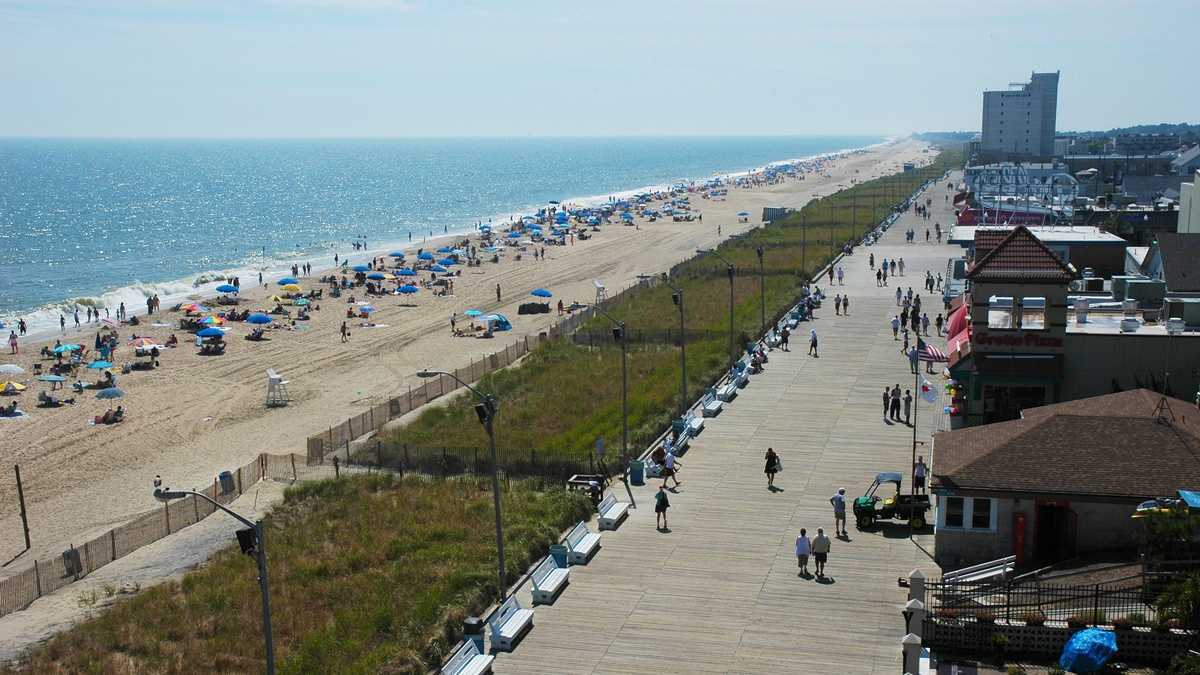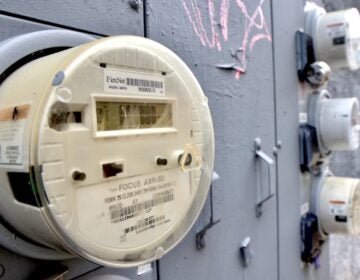Concerns in Delaware over President Trump’s offshore drilling executive order

(photo courtesy of Tony Pratt)
Leaders in Delaware say an executive order signed by President Trump will affect the state’s environment and tourism industry.
Environmentalists, tourism professionals and political leaders in Delaware are voicing opposition to an executive order signed by President Donald Trump Friday that would permit increased offshore drilling for oil and gas.
The order requests Interior Secretary Ryan Zinke to review a five-year plan put in place by the Obama Administration that restricts offshore drilling in parts of the Pacific, Arctic and Atlantic Oceans.
Trump and supporters of the executive order say it would reduce the cost of energy, create new jobs and boost the economy.
However, opponents of the order, including leaders in Delaware, say it would dramatically affect the environment and tourism.
“To risk our coastal economy and natural resources on offshore drilling for oil and gas would also imperil our state’s environmental and economic health,” said Gov. John Carney, D-Delaware, in a statement.
“A new fossil fuel industry on the Atlantic Coast would trigger a cascading of secondary impacts and increased carbon emissions. It would require a vast network of pipelines, increased barge and tanker traffic, and associated industrial development in sensitive coastal areas, including construction of new refineries with supporting infrastructure and increased truck and rail shipments…We should be investing in our beaches and our parks, and taking steps to protect our coastline from the impacts of climate change, not taking these kinds of unnecessary risks.”
Tourism is one of Delaware’s largest industries, accounting for $3.1 billion of the state’s gross domestic product, and responsible for 42,000 jobs. Delaware Tourism Director Linda Parkowski said her office shares Carney’s concerns.
“The National Resource Defense Council has consistently rated Delaware’s beaches as the cleanest on the East Coast. That is important for the tourism industry in the state, and it is essential to maintain their good health,” she said in an email.
Scott Thomas, executive director of Southern Delaware Tourism, agrees should offshore drilling off the Atlantic take place, beach tourism could be undermined.
“I think the risk outweighs any type of financial benefits of it. We have our hands full just bracing for natural disasters like storms, let alone any type of manmade risk, such as any type of spill that could happen as a result. Should anything happen to have our coastline damaged and lose tourism you have a lot more unemployed personnel,” he said.
“We have the cleanest beaches in the country. That’s what we hang our hat on. That’s our tourism anchor. Without that everything else is lost—starting with short-term visitation to long-term relocation, any type of oil exploration presents a risk.”
In addition to impacts to tourism, environmental advocates, like Brenna Goggin of the Delaware Nature Society, say offshore drilling would impact endangered species and Delaware’s fisheries program, create potential conflict with offshore wind projects, and disrupt beaches and marine wildlife.
In 2009, Goggin and other environmentalists teamed up with Delaware’s political leaders to voice opposition to efforts to implement offshore drilling off the Atlantic.
“The governors made quite the case, as did our congressional delegation, of why offshore drilling off the coast of the Atlantic was not sustainable, not a good idea, and the vulnerability related to coastal storms and hurricanes made it an incredibly vulnerable area,” Goggin said.
“We applaud Obama’s efforts to take offshore drilling off the Atlantic coast off the table. We believe that should be honored under the new administration.”
However, it’s still uncertain if Trump has the legal authority to reverse Obama’s drilling restrictions due to language in the Outer Continental Shelf Lands Act of 1953.
Jeremy Firestone, a professor in the College of Earth, Ocean and Environment at the University of Delaware, and the director of the Center for Carbon-free Power Integration, said he believes Trump’s executive order is unlawful.
“The OCSLA provides a President only with the power to withdraw. I do not believe this has ever been adjudicated. The President’s action thus also creates separation of powers issues as per above, only Congress would have the power of modification or recession,” he said in an email.
“And since that executive order may affect the human environment, even if the President had the authority, [the National Environmental Policy Act] might apply, requiring an environmental impact statement prior to its issuance and perhaps a biological opinion under the Endangered Species Act. In short, I expect a number of challenges to the order.”
Firestone said Delaware is home to migratory wildlife, like the bottlenose dolphin, and has great whales that migrate along with other wildlife, that could be affected by the executive order.
However, he said even if the executive order is permitted, it’s not clear an oil company has an interest in exploring the Atlantic, given unknowns regarding reserves, the present market price of oil and a long-term switch away from oil and greater efficiency in use.
Firestone also pointed out that traditionally, drilling efforts have taken place further south, possibly putting Delaware at less risk.
Goggin said that depends on the tides, however.
“I remember when [Hurricane] Katrina happened and [the BP oil spill] happened there was concern about that oil making its way up the coast to the shores of Delaware, so it’s really dependent upon the tide, and while the focus traditionally has been more south, we face a lot of uncertainty with this administration so there’s no telling where the focus might move and be, and where, even possibly, incentives might be given,” she said.
U.S. Senators Tom Carper, D-Delaware, and Chris Coons, D-Delaware, joined 25 Democratic senators urging the Trump Administration to protect coastlines from offshore oil drilling. Led by Senators Edward J. Markey, D-Mass, and Robert Menendez, D-N.J., the lawmakers sent a letter to Zinke outlining the importance of drilling restrictions.
“Our beaches and coasts are some of our most valuable natural resources in Delaware,” Coons said in a statement. “I am deeply concerned about fossil fuel development in the Atlantic, especially as it is against the wishes of many of the state and local governments in the region. We must be careful stewards of our environment, including combating climate change and transitioning to a clean energy future. At this time, I don’t think it makes sense to open up the outer continental shelf for oil and gas drilling.”
Carper echoed his colleague’s comments that a potential oil spill could deeply affect Delaware for years to come.
“Like we saw seven years ago with Deepwater Horizon, oil spills do not respect state boundaries,” he said in a statement.
“A spill anywhere along the East Coast could easily affect our pristine Delaware beaches and our coastal communities that rely on fishing, tourism and recreational activities to drive their local economies. Since the environmental and financial costs from such a disaster can be felt for generations, we need to really think about what kind of environment we want to leave for our children and grandchildren.”
WHYY is your source for fact-based, in-depth journalism and information. As a nonprofit organization, we rely on financial support from readers like you. Please give today.





